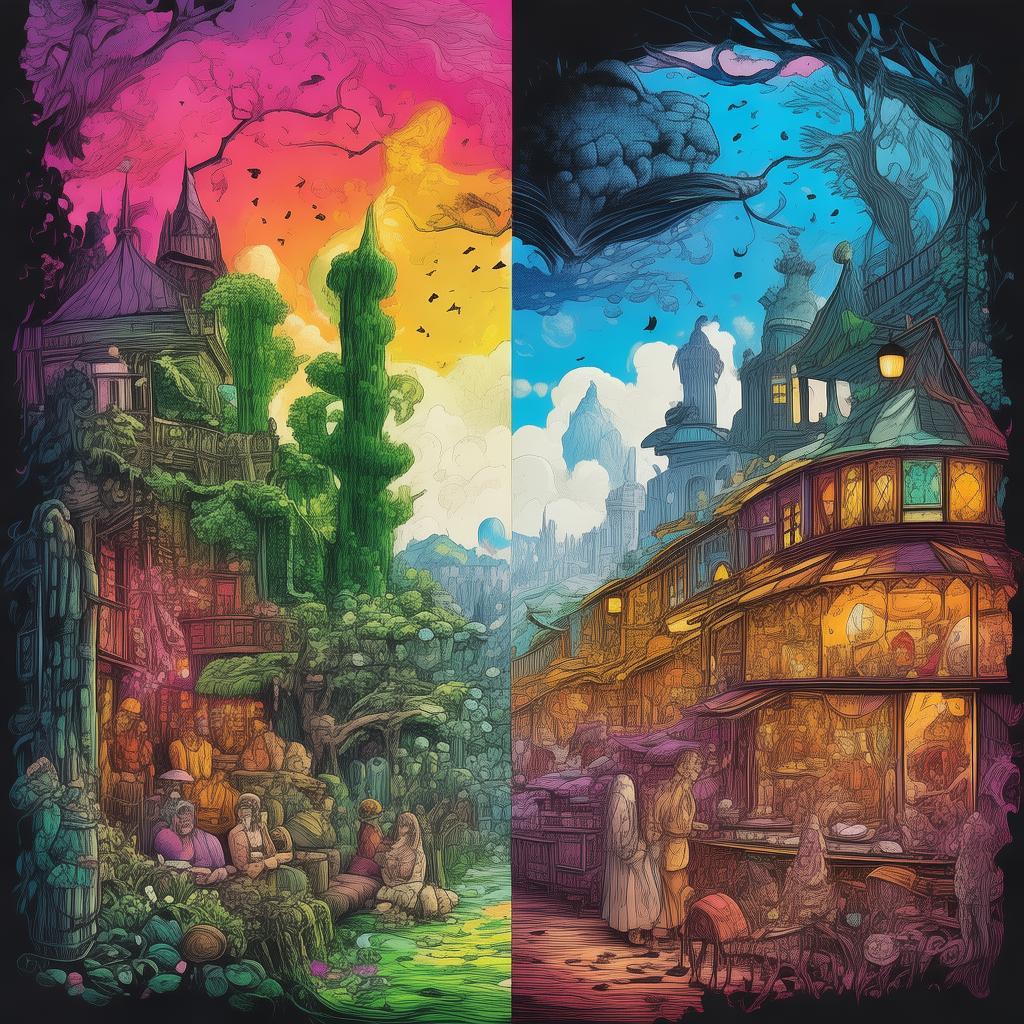The Last Secret of the Garden
In the heart of the English countryside, where the whispering trees and the serene lakes have long concealed their secrets, lay the fabled English Garden of Eden. It was a place of legend, a sanctuary where time seemed to stand still. For centuries, it had been a source of fascination and speculation, a place where the boundaries between reality and myth blurred.
Dr. Eliza Carter, a young historian with a penchant for the arcane, had always been drawn to the Garden's allure. Her research had led her to a dusty archive, where she stumbled upon a journal that promised to unravel the mysteries of the Garden. The journal belonged to a 17th-century scholar named Thomas Whitmore, who had been granted exclusive access to the Garden by its then-keeper, Sir Reginald de Vere.
The journal's cover bore the symbol of a rose entwined with a serpent, a cryptic emblem that Eliza recognized from her studies. She knew it was a sign of danger and revelation. With trembling hands, she opened the journal and began to read.
The journal chronicled Thomas Whitmore's experiences in the Garden, detailing encounters with ancient ruins, strange creatures, and most shockingly, the discovery of a hidden chamber beneath the Garden's heart. It was in this chamber that Whitmore found the secret of the Garden: a collection of artifacts and texts that spoke of a civilization long forgotten, a civilization that had thrived in the Garden before the world as they knew it came to be.
Eliza was captivated by the journal's account of the Garden's origins. It spoke of a time when the Garden was a place of learning and wisdom, a utopia where knowledge was shared freely. But as the journal progressed, it revealed a darker truth: the Garden's inhabitants had been in the midst of a catastrophic war, a war that had driven them to seek refuge within the Garden's walls.
The journal described a final, desperate act: the Garden's keepers had sealed themselves away with the artifacts and texts, hoping to preserve their knowledge for a future when the world might once again be ready to receive it. Eliza realized that the Garden was more than a place; it was a repository of ancient wisdom, a beacon of hope for a world on the brink of chaos.

Determined to uncover the Garden's secrets, Eliza traveled to the English countryside, where the Garden still stood. She was greeted by the sight of lush greenery, the whispering trees, and the tranquil lakes. But as she ventured deeper into the Garden, she began to sense an unsettling presence, as if the Garden itself was alive and aware of her presence.
Her journey led her to the hidden chamber, where the artifacts and texts were preserved. Eliza carefully examined the texts, which spoke of advanced technologies and profound philosophical insights. She realized that the Garden's keepers had been ahead of their time, their knowledge far surpassing that of any civilization that had come before.
As she delved deeper into the texts, Eliza discovered a message that spoke of a time when the Garden would be needed once more. It was a message of hope, a promise that the Garden's wisdom would be rediscovered and used to save the world from its own folly.
But as Eliza began to piece together the Garden's history, she also uncovered a truth about her own past. It turned out that her ancestors had been among the Garden's keepers, and that her lineage was intertwined with the Garden's destiny. This revelation forced her to confront her own fears and desires, as well as the responsibility that came with her connection to the Garden.
The climax of Eliza's journey came when she discovered a hidden passage that led to the Garden's core. There, she found a final artifact: a crystal sphere that contained a vision of the future. The vision showed a world in peril, but also a glimmer of hope. It was a message from the Garden's keepers, a reminder that knowledge and wisdom were the keys to survival.
Eliza knew that she had to take the Garden's wisdom and share it with the world. She returned to the modern world, determined to use her knowledge to help prevent the disasters that threatened humanity. The English Garden of Eden had not only given her the knowledge of a lost civilization but also the responsibility to ensure that the world did not repeat its mistakes.
In the end, Eliza stood in the heart of the Garden, surrounded by the whispering trees and the serene lakes. She felt a profound connection to the Garden's past and its future. As she looked up at the sky, she knew that the Garden's secrets were not just a part of her past but a guide for her future. The English Garden of Eden had not only revealed its secrets to her but had also become a part of her identity, a symbol of hope and wisdom in a world that desperately needed it.
✨ Original Statement ✨
All articles published on this website (including but not limited to text, images, videos, and other content) are original or authorized for reposting and are protected by relevant laws. Without the explicit written permission of this website, no individual or organization may copy, modify, repost, or use the content for commercial purposes.
If you need to quote or cooperate, please contact this site for authorization. We reserve the right to pursue legal responsibility for any unauthorized use.
Hereby declared.









